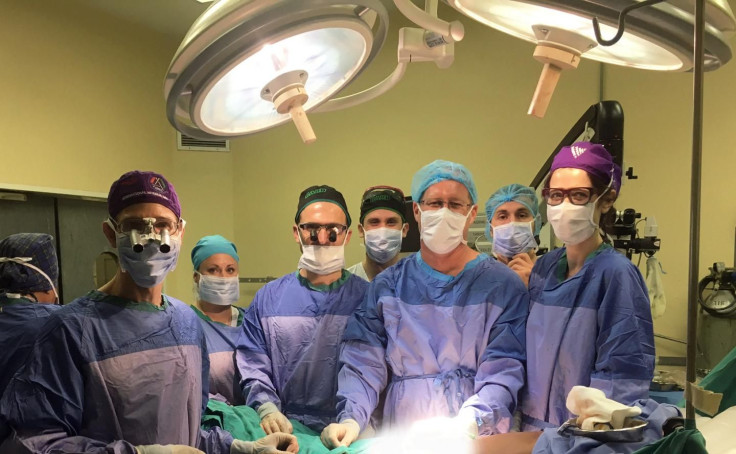Second Successful Penis Transplant Performed In South Africa; What Does This Operation Involve?

South Africa is quickly becoming the penis transplant capital of the world, after a team from Stellenbosch University (SU) and the Tygerberg Academic Hospital recently performed their second successful penis transplant. According to recent reports, the man is recovering well from the operation and doctors described him as “one of the happiest patients” they’ve ever seen.
The operation was performed on a 40-year-old man who lost his penis 17 years earlier due to complications in his circumcision. The nine and a half hour operation was led by André van der Merwe, Head of the Division of Urology at SU's Faculty of Medicine and Health Sciences, on April 21. The patient is expected to make a complete recovery. According to a statement on the operation, the patient is expected to regain all urinary and reproductive function over the course of the next six months.
"He is certainly one of the happiest patients we have seen in our ward. He is doing remarkably well. There are no signs of rejection and all the reconnected structures seem to be healing well," said Van der Merwe, as explained in the statement.
In addition, the color difference between the recipient and the donated penis will be corrected with a procedure known as medical tattooing within the next six to eight months.
The recipient of the first successful penis transplant, carried out in 2015 by the same South African medical team, is also doing well both physically and mentally, according to recent reports.
“He is living a normal life,” said van der Merwe in a statement, referring to the first patient he performed the operation on. “His urinary and sexual functions have returned to normal, and he has virtually forgotten that he had a transplant."
Popular Science reported in order to perform a penis transplant, doctors must remove the penis and pelvic muscles from the donor within hours of their death. The doctors will then stitch the donor's tissues to the recipient's blood vessels, nerves, and urethra. Microsurgery is used to connect small blood vessels and nerves. After the initial operation, the patient has a second minor procedure to remove pieces of dead tissue on the edge of the transplant.
As with any transplant, there is a risk that the recipient may reject the new organ. For this reason, they must take immunosuppressant drugs for the rest of their lives.
Despite the demand for penile transplants, the operation is still very rare. According to Van der Merwe, this may be due to the lack of available penis donations. The doctor explained that, while families are keen to donate organs one cannot visibly see, such as kidneys, they are less likely to donate a visible organ, such as a penis or a hand. However, for the recipient, the gift of a new penis can be phenomenal, with Dr Amir Zarrabi of the transplant team, saying in a statement that some patients describe the penis transplant as “receiving a new life.”
See Also:
Man Sues After Botched Surgery To Correct Penis Curve Shortens 3 Inches Off Male Member
Published by Medicaldaily.com



























